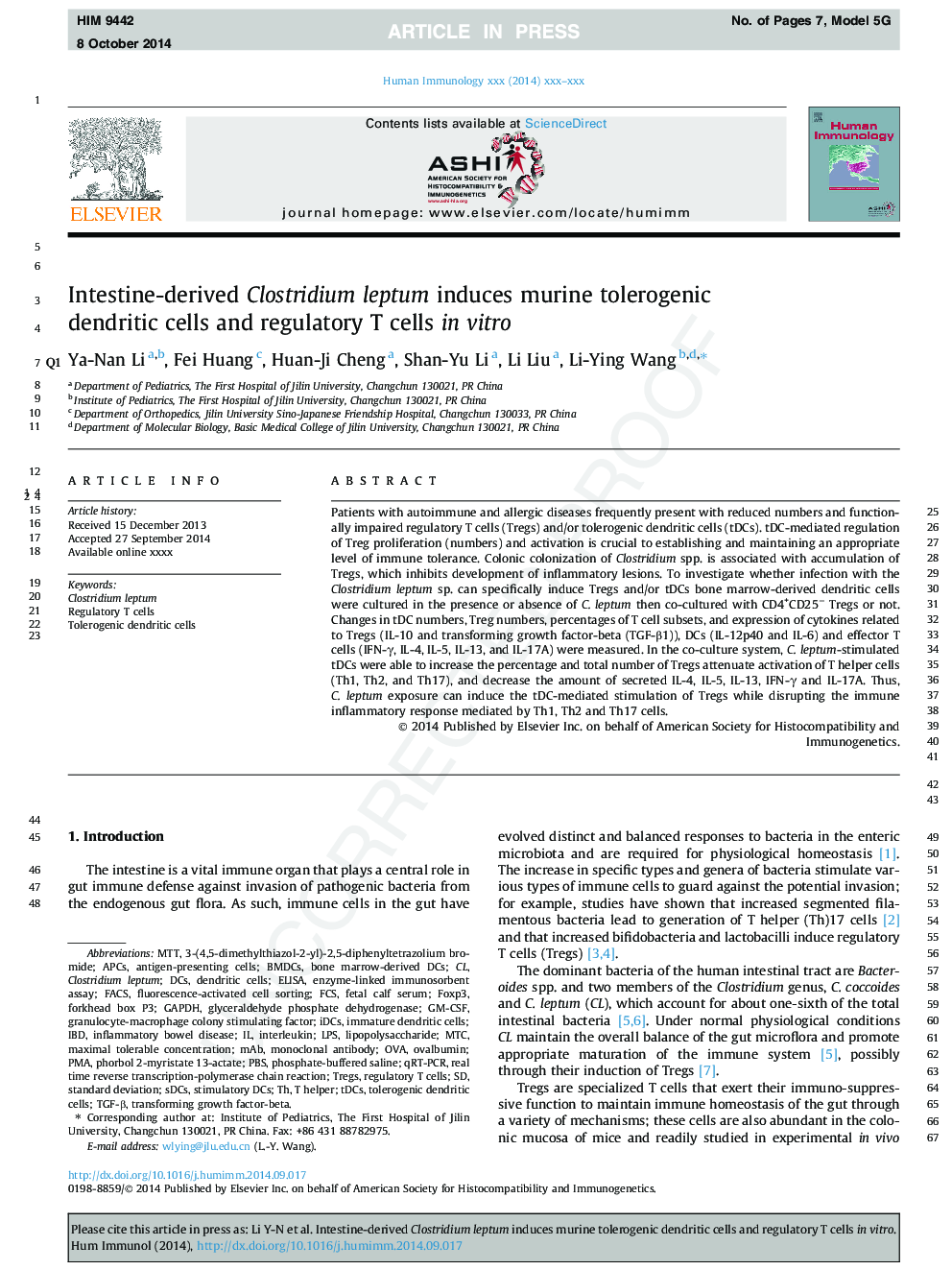| Article ID | Journal | Published Year | Pages | File Type |
|---|---|---|---|---|
| 6116714 | Human Immunology | 2014 | 7 Pages |
Abstract
Patients with autoimmune and allergic diseases frequently present with reduced numbers and functionally impaired regulatory T cells (Tregs) and/or tolerogenic dendritic cells (tDCs). tDC-mediated regulation of Treg proliferation (numbers) and activation is crucial to establishing and maintaining an appropriate level of immune tolerance. Colonic colonization of Clostridium spp. is associated with accumulation of Tregs, which inhibits development of inflammatory lesions. To investigate whether infection with the Clostridium leptum sp. can specifically induce Tregs and/or tDCs bone marrow-derived dendritic cells were cultured in the presence or absence of C. leptum then co-cultured with CD4+CD25â T cells or not. Changes in tDC numbers, Treg numbers, percentages of T cell subsets, and expression of cytokines related to Tregs (IL-10 and transforming growth factor-beta (TGF-β1)), DCs (IL-12p40 and IL-6) and effector T cells (IFN-γ, IL-4, IL-5, IL-13, and IL-17A) were measured. In the co-culture system, C. leptum-stimulated tDCs were able to increase the percentage and total number of Tregs attenuate activation of T helper cells (Th1, Th2, and Th17), and decrease the amount of secreted IL-4, IL-5, IL-13, IFN-γ and IL-17A. Thus, C. leptum exposure can induce the tDC-mediated stimulation of Tregs while disrupting the immune inflammatory response mediated by Th1, Th2 and Th17 cells.
Keywords
BMDCsFCSOVAIBDqRT-PCRDCsGAPDHAPCsGM-CSFTregsmAbFOXP3MTCLPSgranulocyte-macrophage colony stimulating factorFACSPBSiDCssDCs3-(4,5-dimethylthiazol-2-yl)-2,5-diphenyltetrazolium bromidePMAMTTMonoclonal antibodyantigen-presenting cellsstandard deviationOvalbumininterleukinInflammatory bowel diseaseEnzyme-linked immunosorbent assayELISAforkhead box P3fluorescence-activated cell sortingfetal calf serumDendritic cellsimmature dendritic cellsRegulatory T cellslipopolysaccharidePhosphate-buffered salineGlyceraldehyde phosphate dehydrogenase
Related Topics
Life Sciences
Immunology and Microbiology
Immunology
Authors
Ya-Nan Li, Fei Huang, Huan-Ji Cheng, Shan-Yu Li, Li Liu, Li-Ying Wang,
